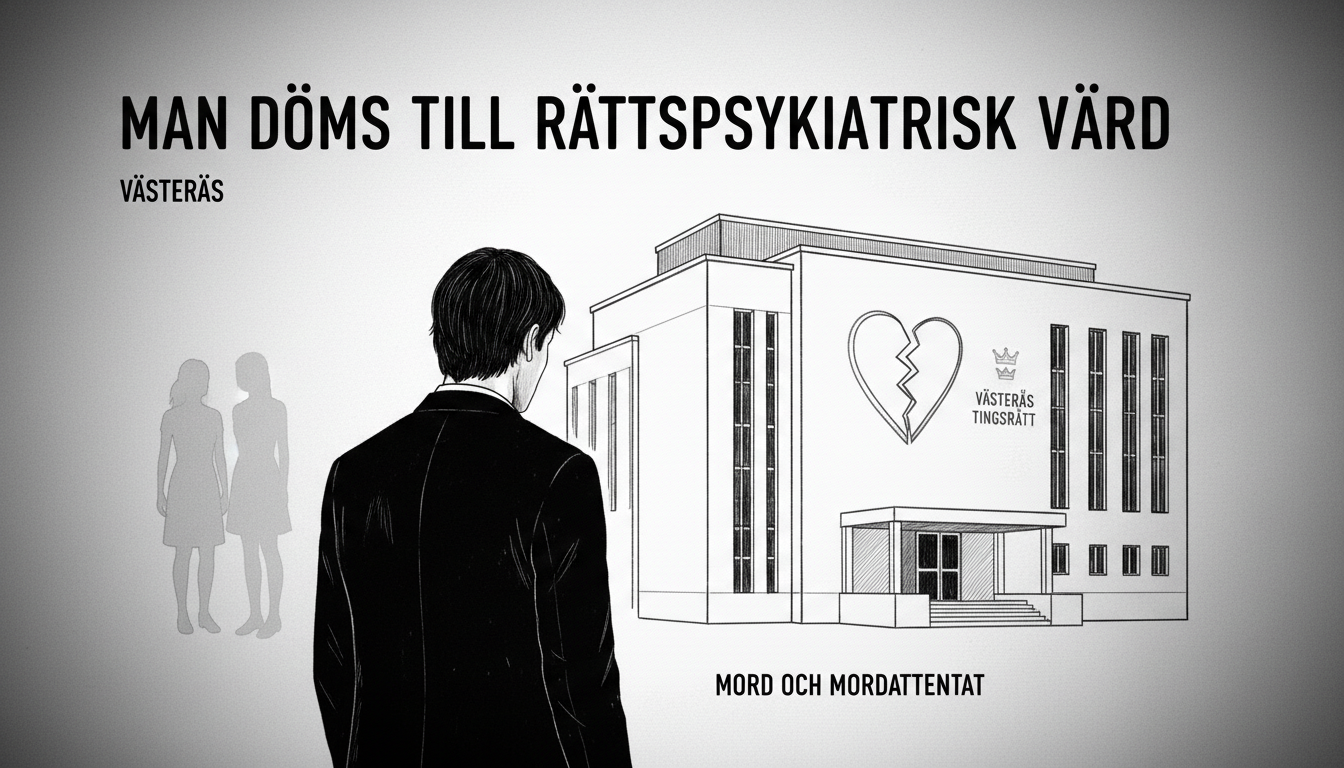A 38-year-old man received a sentence of forensic psychiatric care for killing his girlfriend and attempting to murder his ex-wife. The violent attacks occurred in Västerås during early May. The court determined the man suffered from severe mental illness during the crimes.
The man stabbed his 37-year-old girlfriend to death inside a Skultuna villa. He then drove to his ex-wife's residence in Rönnby and attacked her with a knife. Their shared child intervened during the second assault, potentially saving the mother's life.
The child testified about pulling on the father's shirt and shouting for him to stop. The interruption likely prevented a second fatality. This demonstrates how domestic violence often affects multiple family members beyond the direct victims.
During the trial, the man admitted to both stabbings but claimed he experienced psychosis. The Swedish Forensic Psychiatric Board confirmed his severe mental disorder at the time of the attacks. Prosecutors had pushed for a prison sentence instead of psychiatric care.
Västmanland District Court ruled the man could not understand his actions or their consequences due to his mental state. Swedish law mandates psychiatric care when defendants lack criminal responsibility because of severe mental illness. The court ordered special discharge reviews for future release considerations.
The man must also pay damages totaling approximately two million kronor to ten individuals and one insurance company. This financial penalty provides some compensation to those affected by the violence.
Sweden's forensic psychiatric system focuses on treatment rather than punishment for mentally ill offenders. The approach balances public safety with medical care, though it sometimes generates public debate about justice for victims. This case highlights the complex intersection of mental health and criminal justice in Nordic countries.
Domestic violence remains a serious concern across Sweden despite the country's progressive social policies. The tragic outcome in Västerås shows how mental health crises can escalate into lethal violence within family settings. Local support services continue working to prevent similar incidents through early intervention programs.

